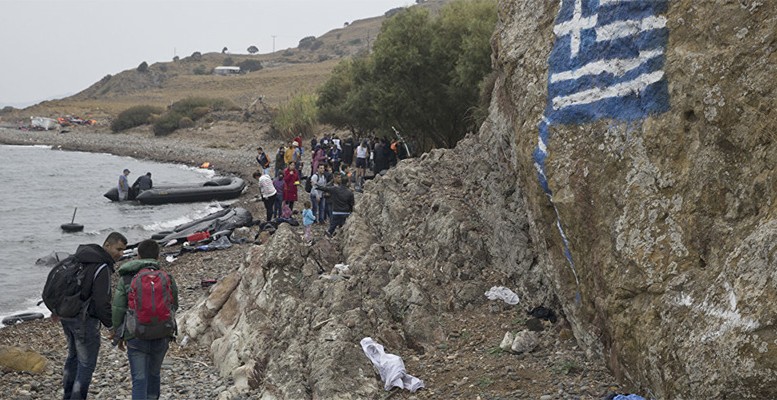So far, publicly the Greek government has not sought to establish a connection between the two issues. At least not in the way that it did last year, when Defence Minister Panos Kammenos claimed that a collapsing Greece would not be in a position to stop migrants, and possible jihadists among them, from reaching Berlin and other capitals.
This type of rhetoric has been set aside, thankfully. Instead, Athens’s focus has mostly been on its belief that it is living up to its commitments and, at the same time, carrying a disproportional burden for its EU partners. This, it hopes, will counter the prevailing image of Greece as a country that repeatedly fails to cooperate and has to be pushed to the brink to act, whether it is in improving the screening of refugees or in implementing structural reforms.
On the European side, there have been repeated messages that the bailout review cannot be linked in any way to the growing refugee problem. There would be an unseemliness to Greece and its lenders horse-trading like that, balancing economic figures and fiscal targets one side with human lives on the other. It is not clear if this is the deterrent, though, or whether the institutions feel that if Alexis Tsipras’s government is allowed to slip from their tight grip now, they will not be able to pin him down to the fiscal and reform targets he needs to hit in order for the programme to have a chance of succeeding.
These mixed motivations were best summed up by the comments made by German Finance Minister Wolfgang Schaeuble at the LSE on Thursday. “Greece is suffering a terrible lack of solidarity by a lot of European member states,” he said, arguing that only Germany is defending Athens. “I know how fragile Greece’s situation is due to the additional refugee crisis which is a major challenge but its interest should not be to … use the migration crisis to avoid sticking to the review agreements,” he added.
However, beyond Schaeuble’s tea and sympathy approach, there seems to be a growing realisation that Greece having to handle a humanitarian crisis and the uncertainty of a prolonged review at the same time would be a recipe for disaster. We saw last year how Greece’s state machinery seized up as the government focussed solely on the negotiations with lenders and how this led to most arrivals not being screened properly. An absence of presence from authorities currently, with the border restrictions that are in place in the Balkans and central Europe, would create absolute chaos.
“Greece and the Greek people are paying a very high price for the problem they themselves did not create,” said European Council President Donald Tusk on his visit to Athens on Thursday. “I want to state here very clearly that the European Union will not leave Greece alone.”
His remarks came just a few days after German Chancellor Angela Merkel caught everybody’s attention with her comments in a TV interview regarding not abandoning Greece to its fate.
“Do you seriously believe that all the euro states that last year fought all the way to keep Greece in the eurozone – and we were the strictest – can one year later allow Greece to, in a way, plunge into chaos?” she said, indirectly linking the euro and refugee crises.
Perhaps it is a coincidence that a spate of such comments coincided with a series of meetings between Greece’s lenders aimed at overcoming their own differences but there are indications of concern in some European capitals about the review not being completed and Greece in the meantime going from being a transit to a host country for refugees.
The question Greece has to ask itself, though, is what is driving the apparent concern of some of its European counterparts. Are they worried that the EU’s image as a progressive union of enlightened countries will be forever damaged by the creation of a humanitarian crisis in a member state that cannot fend for itself, let alone thousands of new arrivals? Or are they anxious that a tense Greek government, distracted by another round of tense bailout negotiations, will not be able to be the keeper of Europe’s antechamber, to which role many of its partners have now assigned it.
If it is the latter, then Greece should not be under any illusions about its immediate future, which would involve being kept alive economically in order to receive, treat, feed, clothe and house tens of thousands of refugees so the flows towards central and northern Europe become more manageable.
If there are any doubts about what performing this assignment might look like, then the European Commission’s unprecedented decision this week to propose a humanitarian aid package of 700 million euros to assist refugees, mostly in Greece, over the next three years provides a good idea. Until now, such assistance has been reserved for use in conflict zones and never before deployed in Europe.
Just as it was in 2010, when the debt crisis erupted, Greece may end up being a testing ground for Europe’s response to a crisis the like of which it had never seen before. This is not the connection between the refugees and the bailout that the Greek government would have hoped for.





